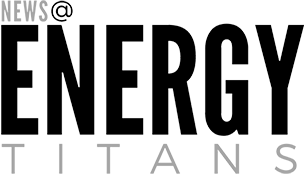BHP’s move for Anglo signals fierce battle for resources vital to green transition
Today’s top stories
-
US inflation rose more than expected to 2.7 per cent in March, according to the measure used as a target by the Federal Reserve. The “core” measure remained stuck at 2.8 per cent. Separate inflation data yesterday was also higher than expected, casting doubt on the potential for interest rate cuts and a blow to President Joe Biden’s re-election hopes.
-
The yen hit a 34-year low after the Bank of Japan held interest rates near zero despite rising pressure on the central bank to tighten its policy and prop up the currency. The BoJ ended its negative rates policy in March, raising borrowing costs for the first time since 2007.
-
US regulators’ move to ban non-compete agreements that tie down high-priced personnel has sent shockwaves across Wall Street. The Federal Trade Commission is invalidating existing contracts for most employees and for all new contracts starting in August. The FT editorial board said the ban was justifiable.
For up-to-the-minute news updates, visit our live blog
Good evening.
The battle for natural resources crucial to the green energy transition is in the spotlight again with the biggest offer for a mining company in years and a new warning over China’s dominance of a critical mineral.
BHP’s proposed £31bn takeover of Anglo American would make it the world’s biggest producer of copper, a barometer of global economic health, given its use in everything from electric batteries to power lines.
Anglo has rejected the proposal, which provoked a backlash from the South African government and shareholders, raising the prospect of a bitter hostile takeover battle, possibly drawing in industry rivals such as Glencore and Rio Tinto.
Traders have been betting on a tighter market for the red metal as supplies get squeezed, although the recent discovery of a vast copper deposit in Zambia by a mining start-up backed by Bill Gates and Jeff Bezos could help Mingomba, in the north of the country, become one of the world’s top three high-grade copper mines.
Another crucial battery material, graphite, is at the centre of a warning from South Korea, the leading supplier for electric vehicle batteries in the US.
President Joe Biden’s Inflation Reduction Act seeks to cut out “foreign entities of concern” from EV supply chains, but with Chinese companies controlling more than 99 per of the global market for battery-grade graphite and 69 per cent of the market for synthetic graphite used in battery anodes, this makes it nearly impossible for any EV maker to qualify for US subsidies, South Korea says.
Apple, meanwhile, is under fire from the Democratic Republic of Congo, which accuses the iPhone maker of using illegally exported minerals from the war-torn east of the country. Apple’s sourcing of the “3T” materials — tin, tungsten and tantalum, critical in the manufacturing of smartphones — has long been under scrutiny.
Lithium, another important component for EV batteries, has also been in the spotlight as India rushes to catch up with rivals including China in the race to build next-generation energy supply chains. New Delhi is pushing state-owned mining groups to pursue mineral reserves in South America and Africa as well as inviting bids to develop domestic production.
Magnesium, crucial for making lightweight aluminium alloys used in cars and packaging, is another metal dominated by China, which accounts for more than 90 per cent of EU supplies. The bloc is now restarting mining for the first time in more than a decade with a venture in Romania.
China also accounts for about 70 per cent of mining and 90 per cent of processing of rare earths, a set of 17 elements used in a variety of products critical to the energy transition. That gives Beijing a near-monopoly on permanent magnets used in electric vehicles, wind turbines and fighter jets.
The US and Australia are spearheading pushes to reduce this dependency but the task is not without difficulties: China in December banned exports of technologies for processing rare earths as it fought back against curbs on computer chip sales to Chinese companies.
Need to know: UK and Europe economy
The UK opposition Labour party set out plans for “the biggest overhaul in a generation” of the railways, centred on nationalising all passenger train companies. The private sector will, however, continue to play an important role.
Whatever happened to levelling up? A Big Read examines how the Tories’ flagship £15bn policy delivered virtually nothing over the course of a parliament.
Economics commentator Chris Giles says a new Labour government may create a virtuous circle between higher growth and improved public finances and services.
Join the FT’s political team for an expert Q&A to digest the results of next Thursday’s local and mayoral elections. Register here for free to watch live on May 8 at 13:00-14:00 BST.
Pedro Sánchez is weighing up his position as Spain’s prime minister after right-wing “harassment” led to a graft inquiry into his wife. The country is left guessing ahead of an announcement on Monday.
Need to know: Global economy
Chinese President Xi Jinping told US secretary of state Antony Blinken that the two countries should avoid “vicious competition” amid tensions over issues including Taiwan and Beijing’s support for Russia’s war in Ukraine.
The World Bank warned that geopolitical tensions were again likely to drive up commodity prices, reigniting inflationary pressures that could hit central banks’ ability to lower interest rates.

The austerity and deregulation programmes of Argentine President Javier Milei have cheered markets but are causing deep pain for households. The economy shrank 3.6 per cent in the first two months of 2024 and consumer spending has plummeted.
Need to know: Business
It’s been a big week in Big Tech. Google parent company Alphabet announced a 15 per cent jump in first-quarter revenues, its first-ever dividend and a $70bn share buyback, sending its market value past $2tn. Microsoft also reported buoyant revenues and earnings as its cloud sales received a boost from AI. Meta chief Mark Zuckerberg vowed to increase spending and turn the social media group into “the leading AI company in the world”. Investors were not impressed and sent the company’s shares diving more than 12 per cent.
Several European banks also reported first-quarter results. NatWest profits fell more than a quarter as interest rate windfalls receded; Barclays’ profits dropped 13 per cent due to weakness in its domestic business and its investment bank, but were better than expected. Meanwhile, trading and investment banking helped Deutsche Bank report its highest quarterly profit in 11 years.
ExxonMobil profits fell a more-than-expected 28 per cent on weaker gas prices and refining margins as the oil major highlighted “troubling” events in the Middle East and Russia. Rival Chevron was hit by the same problems but was boosted by a 35 per cent increase in US production.
Stellantis boss Carlos Tavares said the UK’s EV policy was “terrible” and could bankrupt carmakers. Tavares said the quota regime, which requires manufacturers to meet sales targets that rise annually, was set at “double the natural demand” and would mean carmakers having to sell vehicles at a loss to avoid fines.
Dealmaking in European commercial property has hit a 13-year low as investors lose hope of early interest rate cuts.
France’s Hermès is emerging as a winner in the luxury goods sector thanks to strong demand for its Birkin handbags. It is defying an industry slowdown that has hit rivals such as Kering, and to a lesser extent, LVMH.
Is the end nigh for call centres? Indian IT giant Tata Consultancy Services said AI could lead to their disappearance within a couple of years.
Science round-up
Intense heatwaves in India, Thailand and Bangladesh and fatal floods in China and Pakistan coincided with the latest UN warning that climate change is causing major repercussions across Asia.
Despite increasing evidence of global warming, politicians and investors are softening their opposition to fossil fuels. This “energy pragmatism” is indefensible, argues science commentator Anjana Ahuja.
A simple new blood test could help spot cancer cases in poorer countries. The method can detect multiple diseases within minutes and could slash missed diagnosis rates for colorectal, gastric and pancreatic cancers.
The EU approved a new antibiotic to tackle the scourge of superbugs. Pfizer’s Emblaveo is aimed at some of the most dangerous drug-resistant bacteria. Anti-microbial resistance is estimated to be linked to 5mn deaths a year worldwide.
Scientists are making great strides towards tackling the effects of ageing, but will regulators ever agree to consider it a “treatable” condition, asks columnist Camilla Cavendish.
Next-generation nuclear developers such as Rolls-Royce are battling “regulatory marathons” that are slowing down the nascent industry for small modular reactors.

Some good news
A new study provides the strongest evidence to date that nature conservation efforts are having a positive impact on the environment.



